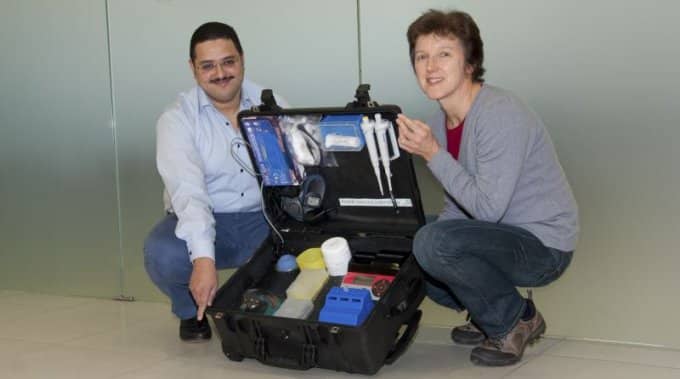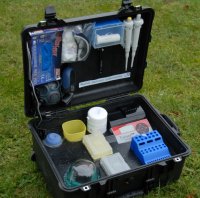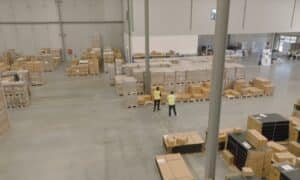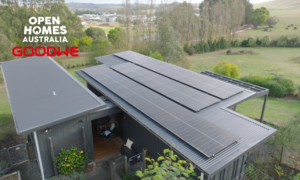While the Ebola crisis may not feature as heavily in headlines now; the battle rages on – and solar power is set to assist in the rapid detection of the virus.
The recent Ebola epidemic is the largest in history and has affected a number of countries in West Africa.
To date, a total of 21,086 cases have been reported in Guinea, Liberia and Sierra Leone; with 13,376 of those laboratory confirmed. According to the USA’s Center for Disease Control (CDC), 8,289 people have died as a result of the virus in those countries so far.
Diagnosis in the early stages can be difficult as initial symptoms are not specific to Ebola infection and often present in other diseases, such as malaria and typhoid fever.
Current tests rely on the detection of Ebola genome using a technique not suitable for on-site screening. This means potentially very dangerous samples need to be transported over long distances to suitably equipped laboratories for testing. As well as increasing the risk of infection through accidents, the transporting of samples faces the threat of hijacking for political motives. There has already been a case of a vehicle transporting infected materials being stolen.
To speed up diagnosis and to minimize other risks, Dr. Ahmed Abd El Wahed, a scientist in the Unit of Infection Models at the German Primate Center (DPZ), has developed Diagnostics-in-a-Suitcase. The unit contains all reagents and equipment needed to detect the Ebola virus within 15 minutes on-site.

Among its features, Diagnostics-in-a-Suitcase incorporates a solar panel and battery bank.
“In remote field hospitals, resources such as electricity and cold storage are often in short supply,” said Dr. Abd El Wahed. “The Diagnostics-in-a-Suitcase will therefore contribute to a better management during the Ebola-outbreak”.
The mobile suitcase laboratory is about to begin a field trial in Guinea. The project has been funded by the British Enhancing Learning and Research for Humanitarian Assistance (ELRHA); hosted by Save the Children Fund as part of the Research for Health in Humanitarian Crisis (R2HC) programme.
Diagnostics-in-a-Suitcase isn’t the first time solar has been used in compact, mobile medical applications. In 2011, the WE CARE Solar Suitcase was developed to help address the issue of a lack of electricity in health care facilities throughout the developing world












































